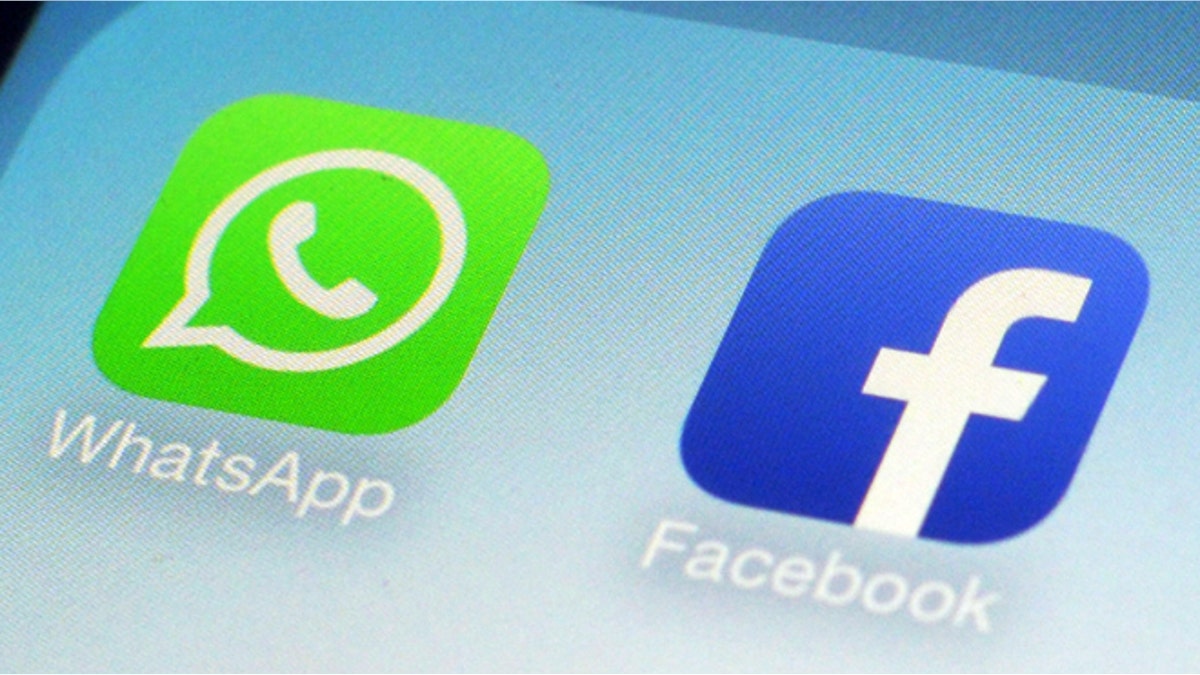
On Wednesday the world's biggest social networking company, Facebook, announced it is buying mobile messaging service WhatsApp for up to $19 billion in cash and stock. (AP)
Facebook announced it is paying $19 billion in cash and stock for the mobile messaging app WhatsApp.
WhatsApp is the No. 1 paid social networking app for iOS and the No. 5 free communications app on Google Play, with more than 450 million monthly active users. The cross-platform app is also available for BlackBerry and Windows Phone. With all these users downloading the messaging app to group chat and send photos and videos--without incurring texting fees--is WhatsApp worth the hype? Yes, and here's why.
Setup
After installation, WhatsApp accesses your Contacts and sends you push notifications with your consent. You then enter your phone number--the app doesn't assign you a new number. Then you can name your phone and add a profile picture.
The Scoop
Pros: Speedy setup and performance; Lets you keep your phone number; Clean interface; Can send multimedia; No international charges; Can blockunblock contacts.
Cons: Pricing on calls depends on carrier; Doesn't sync with Facebook
The Verdict: WhatsApp lets you group message and send photos and videos via an easy-to-use interface--without having to pay texting fees to your carrier.
Rating: 4 out of 5 stars
MORE: 10 Best Android Smartphones
Interface
WhatsApp's interface is clean and simple, with a bottom nav bar for Favorites, Status, Contacts, Chats and Settings. Favorites displays your Contacts who use WhatsApp and offers the ability to invite contacts via mail, message or Twitter. Status lets you set a status like Available, Busy or In A Meeting, or clear your status. Contacts lists all of your contacts (you can also search within your Contacts from here).
You can start a new conversation within Chats by tapping the Compose button in the upper right. Chats lists your conversations and lets you start group chats. Settings is where you can tweak everything from font size and message timestamp to notifications.
Features
In addition to texts, WhatsApp users can send photos, videos, audio notes, contacts and locations. WhatsApp also lets you send and receive phone calls; however, calls are placed through your mobile carrier.
WhatsApp uses green arrows to indicate whether your message was delivered and read, and you can see when your friend is typing. There's an option to email conversations, and swiping right on a chat deletes it.
MORE: 10 Best iPhone Apps You're Not Using
One feature that's notably missing from WhatsApp is the ability to sync with Facebook, which is available on such messaging apps as TextFree.
Performance
In our testing of WhatsApp, text messages were sent and arrived quickly and seamlessly. Group chat was as simple as picking a subject (the app supports up to 30 participants, which is 10 less than Viber's 40 participants). We sent and received all kinds of multimedia without a hitch. Calls went through quickly, and the audio quality (as expected) was as clear as placing a call through our iPhone's dialer. Status changes also happened immediately.
Pricing
Although WhatsApp is 99 cents on iOS and has a 99-cent annual fee on all other platforms, a big appeal of the app is that there are no international charges, so you can chat with WhatsApp friends everywhere. However, when you make a phone call, carrier rates apply. On Viber, Google Hangouts and Facebook Messenger, calling is free to other users of those services.
MORE: Top 25 Windows Phone Apps
Verdict
WhatsApp makes it a cinch to stay in touch with friends and family without having to pay a bundle for text-messaging fees. We also appreciate the robust multimedia and group chat support. Even though it's 99 cents on iOS and 99 cents annually on Android, it's well worth the dollar to text friends on the cheap. However, we give a slight edge to Viber, which lets you make domestic and international calls for free to other Viber users instead of having to use up your minutes.








































